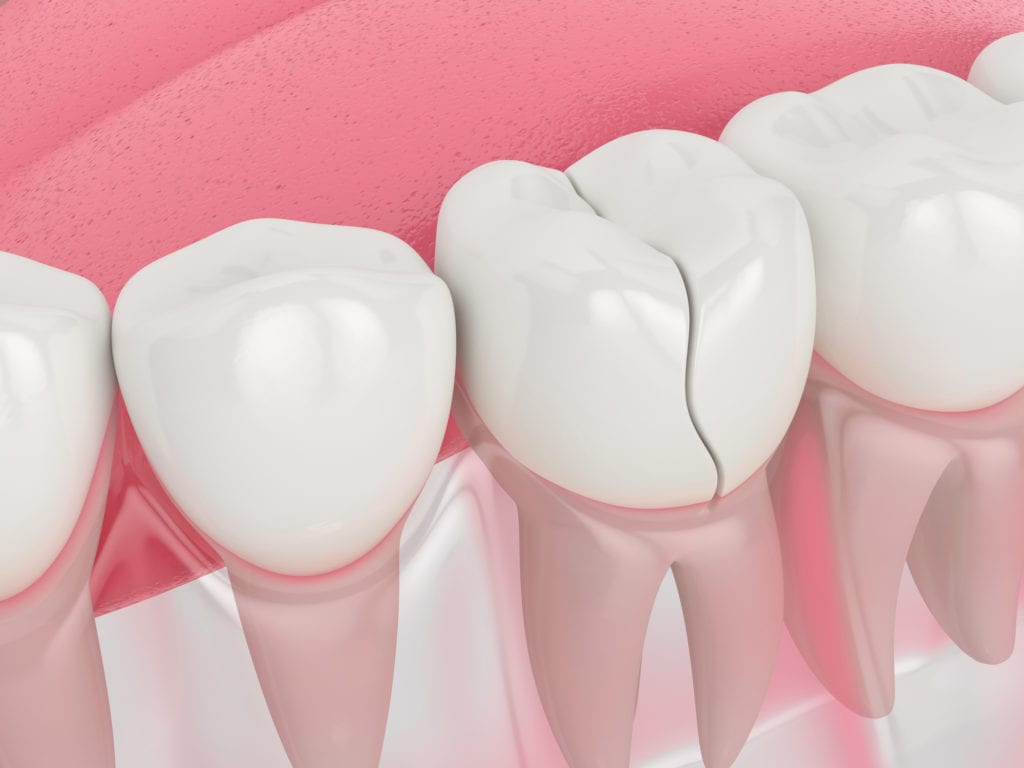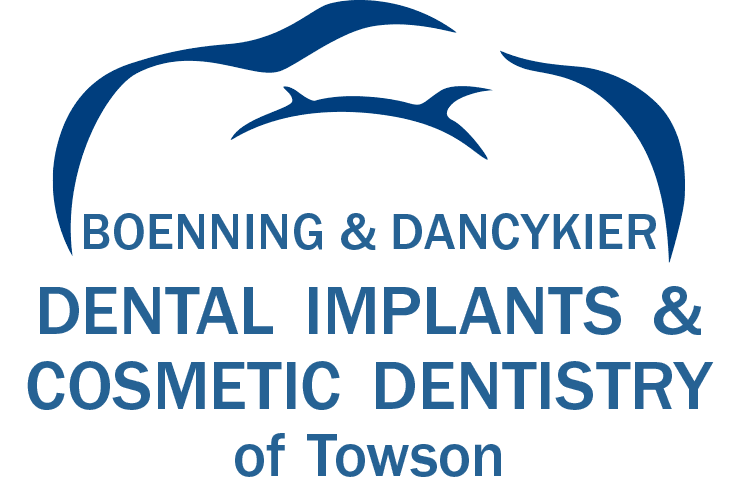Have dentists told you that you have “hopeless teeth”? Are you frustrated by constant dental problems? Dr. Boenning and Dr. Dancykier provide full mouth restorations for severely worn, cracked, fractured, infected, and missing teeth. We address these dental concerns and more in our Towson, MD dental office.
Dr. Boenning and Dr. Dancykier are expert prosthodontists. They help our patients fill the gaps between their teeth, and restore damaged and infected teeth. Additionally, they have years of experience in assisting patients with difficult and extensive dental issues.

The Importance of Repairing Failing Teething
Your oral health can affect your overall health, so it is important to take good care of your teeth and gums. Good oral hygiene habits are part of caring for your overall well-being. If you have teeth that are failing because of any type of dental issue, it will affect your health in many ways.
It can even lead to systemic health problems. Repairing failing teeth will help relieve pain, discomfort, and other symptoms. Early intervention will give your dentist the best chance at saving the tooth. It also prevents further damage and additional dental problems.
The longer you wait to address your failing teeth, the more costly your treatment can become. Failing teeth treatment will repair your teeth and promote good oral and overall health.
Restoring Failed Teeth
Dr. Boenning and Dr. Dancykier may recommend one or more procedures to help you restore your teeth to their best health. Before treatment, we will conduct a thorough examination using x-rays, digital imaging, and other diagnostics. We will create a treatment plan that targets your specific oral health problems.
Tooth Extractions
We use tooth extractions as a last resort. The ultimate goal is to save teeth and restore them when possible. Reasons we may extract them include severe damage, overcrowding, or severe decay. In these cases, extracting them is the best option to improve your overall oral health.
If you have overcrowded teeth, you may have difficulty keeping them clean. Lack of proper oral care can easily lead to gum disease or tooth decay. If you have infected teeth, the disease can spread and take over your entire mouth. However, extracting problem teeth allows us to work with a healthier foundation.
Periodontal Therapy
Gum disease is a serious problem, yet it is simple to avoid. This common oral health problem can lead to painful symptoms and can even cause tooth loss when left untreated. As periodontitis, or gum disease, progresses, it may lead to gum recession, bone loss, and tooth loss.
Treating gum disease as soon as possible is the best thing you can do for your oral health. Typically with early intervention, we can successfully treat it. Scaling and root planing are great treatments that we use.
We will remove the infection from under the gums and help the teeth reattach to the gums. Sometimes, all a patient needs is a deep cleaning and a prescribed antibacterial rinse.
Missing Teeth Solutions
If you suffer from missing teeth, there are several ways to replace them. We can use dental implants, dental bridges, or dentures to replace your teeth. The number-one way to restore missing teeth is with dental implants.
However, a dental implants treatment can fail if patients are predisposed to dental decay or gum infections. Your dentist will need to address those issues first, prior to implant treatment to ensure success.
Failing Teeth FAQs
Not sure where to begin with your failing teeth? Start by reading through our frequently asked questions. Call our office if you have a specific question or to schedule your consultation.
What are the signs of a failing tooth?
Signs of a failing tooth can include persistent tooth pain or sensitivity, especially when eating hot, cold, or sweet foods. You may also experience swelling or redness in the gum tissue around the tooth. A loose or wobbly tooth is another sign that the tooth may be failing. This could suggest damage to the supporting healthy bone structure.
Additionally, if you have persistent bad breath, this could be a sign of a failing tooth. If you experience any of these symptoms, you should consult your dentist for an evaluation.
Can a dentist repair bad teeth?
Yes, a dentist can repair bad teeth using a variety of dental procedures. Depending on the extent of damage to the teeth, dentists can provide restorative treatments such as fillings and tooth crowns. They can also provide more advanced procedures like dental implants and porcelain veneers.
In addition, most dentists offer preventative services like sealants and fluoride treatments. Your dentist will work with you to discuss treatment options for your situation.
What causes teeth to weaken?
Poor oral hygiene, consuming acidic foods or drinks, genetics, poor diet, and dry mouth can weaken teeth. Additionally, smoking cigarettes, using a hard-bristled toothbrush excessively, or grinding your teeth can weaken your teeth over time. To help strengthen your teeth, brush twice a day and floss regularly.
Brushing and flossing daily will help your teeth maintain their strength by removing bacteria from the mouth. Fluoride from toothpaste strengthens the enamel and protects it against tooth decay.
What is the best option for replacing teeth?
Dental implants are usually the best option for replacing missing teeth. They are a popular choice because of their longevity and ability to mimic the appearance of natural teeth. Dental bridges and dentures are also good solutions for certain patients. Overall, you should consult a dentist who will evaluate your situation and recommend the best tooth replacement solution.
Can I keep my teeth with periodontal disease?
Keeping your teeth with periodontal disease is possible if you seek prompt treatment. Early intervention is important to prevent the periodontal disease from progressing to more severe stages. Your dentist may recommend scaling and root planing, a deep cleaning procedure that removes plaque and tartar buildup.
Sometimes patients need further treatments or even surgery. You should work with a dentist or periodontist so they can tailor an appropriate treatment plan for you.
Is it better to pull a tooth or save it?
It is usually better to save a tooth rather than removing it. Saving the natural tooth is often better because it provides more functionality and aesthetics. If your dentist cannot save the tooth, you may need an extraction.
A dental implant or denture should follow an extraction. The best course of action will depend on the extent of the damage to your tooth. Ultimately, it’s important to consult your dentist before saving or extracting a tooth.
If your failing teeth are interfering with the quality of your life, we can help you restore them. Request an appointment with our experienced dental team on our website. You may also call our office at 410-324-2294 to request an appointment with our dentists.
